The AI Conundrum in Creativity
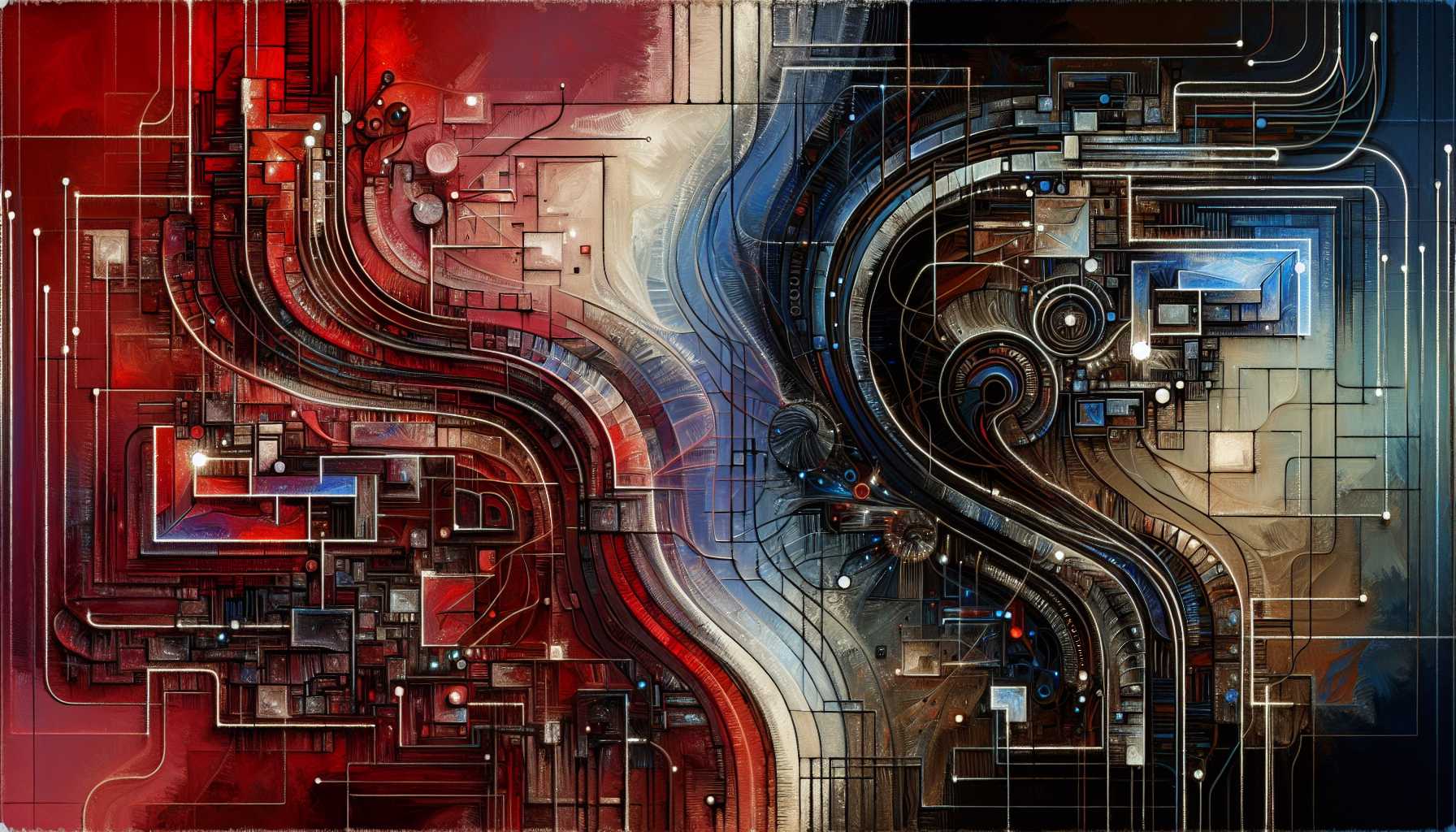 There’s been a cloud of controversy hanging over generative AI since its inception, fueling discussions and debates from cozy coffee shops to the sharp-edged critique corners of the internet. But despite this, the glitz and glamor of the entertainment industry have steadily woven AI into their storytelling tapestry. It’s a tale of two cities: one of human originality and another of artificial augmentation. The artistic fraternity has looked on with a mix of wonder and wariness as AI continues to churn out creations with varying degrees of flair and faux pas. But when True Detective’s latest installment, ‘Night Country,’ sneaked in AI-generated posters with all the charm of a clumsy cyborg, we were forced to ponder: is this intentional irony or a peek into future aesthetics? As someone perusing the frontlines where tech meets human touch, I find the questions and discomfort around AI’s role in creativity both valid and charged with potential. Exploring these juxtaposed elements uncovers the evolving narrative of AI in our lives – and it’s a story worth telling.
There’s been a cloud of controversy hanging over generative AI since its inception, fueling discussions and debates from cozy coffee shops to the sharp-edged critique corners of the internet. But despite this, the glitz and glamor of the entertainment industry have steadily woven AI into their storytelling tapestry. It’s a tale of two cities: one of human originality and another of artificial augmentation. The artistic fraternity has looked on with a mix of wonder and wariness as AI continues to churn out creations with varying degrees of flair and faux pas. But when True Detective’s latest installment, ‘Night Country,’ sneaked in AI-generated posters with all the charm of a clumsy cyborg, we were forced to ponder: is this intentional irony or a peek into future aesthetics? As someone perusing the frontlines where tech meets human touch, I find the questions and discomfort around AI’s role in creativity both valid and charged with potential. Exploring these juxtaposed elements uncovers the evolving narrative of AI in our lives – and it’s a story worth telling.
True Detective: An AI Generated Misstep or Masterstroke?
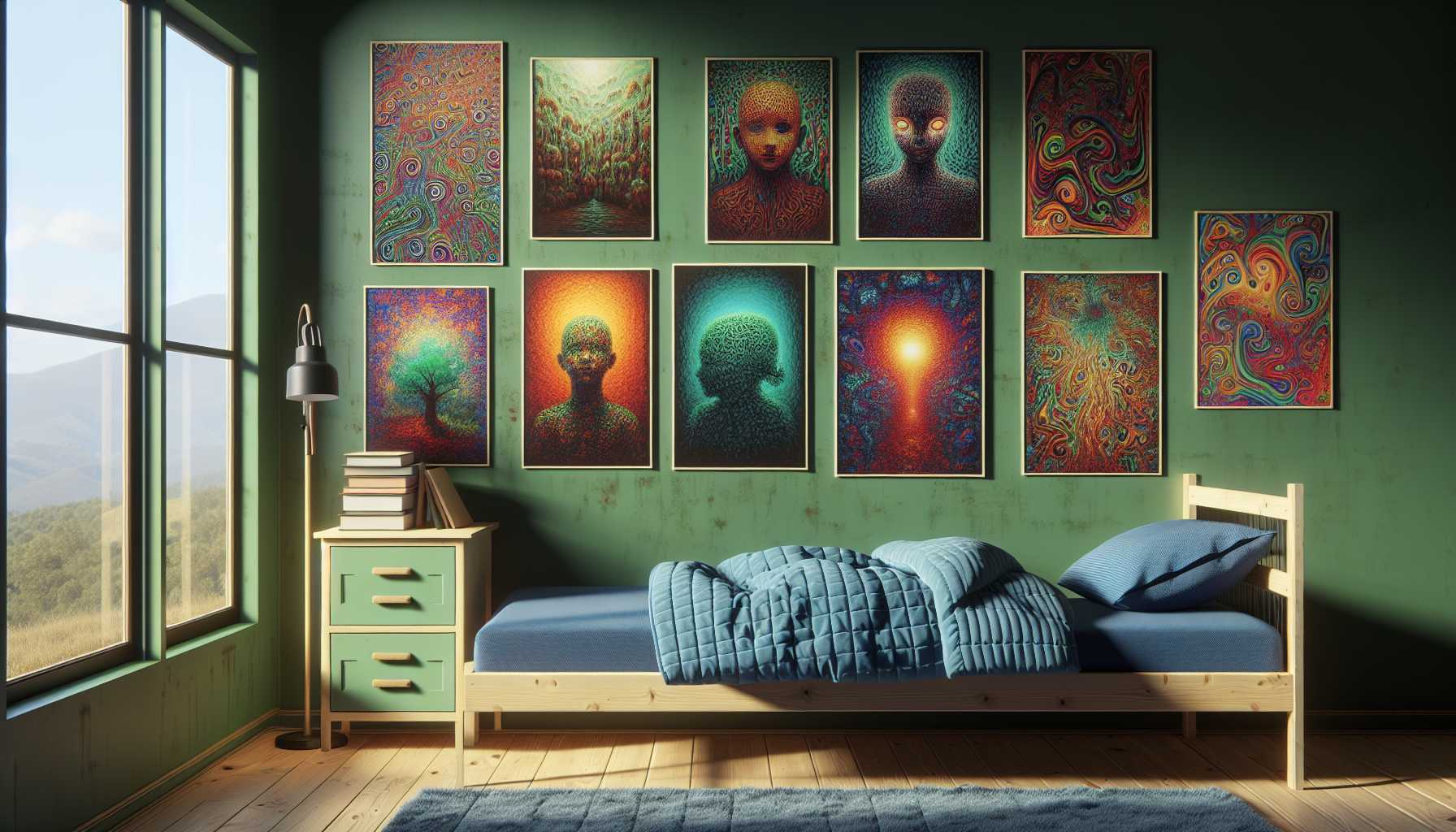 The scene from ‘True Detective: Night Country’ wielded AI like a quirky character of its own. The lack of finesse in these posters might not have snagged your attention on the first view. But those ‘2st LIVE’ taglines and awkward graphics are like Easter eggs for the discerning eye, hinting at the AI’s nascent stage in mastering the human craft. Issa Lopéz, the showrunner, explains the scene’s intent to depict a setting so bereft of zest that even the posters scream desolation, fashioned by perhaps an aspiring AI aficionado. A clever twist, or a convenient cover? One thing’s certain: AI’s role in visual storytelling, whether as a foil or a cost-effective tool, is inciting discourse – and that’s a sign of a narrative doing its job. Personally, I find the inclusion of AI-generated work in films and shows intriguing. It holds up a mirror to our times – a distorted, sometimes comical reflection, true, but poignant in its relevance.
The scene from ‘True Detective: Night Country’ wielded AI like a quirky character of its own. The lack of finesse in these posters might not have snagged your attention on the first view. But those ‘2st LIVE’ taglines and awkward graphics are like Easter eggs for the discerning eye, hinting at the AI’s nascent stage in mastering the human craft. Issa Lopéz, the showrunner, explains the scene’s intent to depict a setting so bereft of zest that even the posters scream desolation, fashioned by perhaps an aspiring AI aficionado. A clever twist, or a convenient cover? One thing’s certain: AI’s role in visual storytelling, whether as a foil or a cost-effective tool, is inciting discourse – and that’s a sign of a narrative doing its job. Personally, I find the inclusion of AI-generated work in films and shows intriguing. It holds up a mirror to our times – a distorted, sometimes comical reflection, true, but poignant in its relevance.
Ye’s Vultures: An AI-Assisted Dive into Darkness
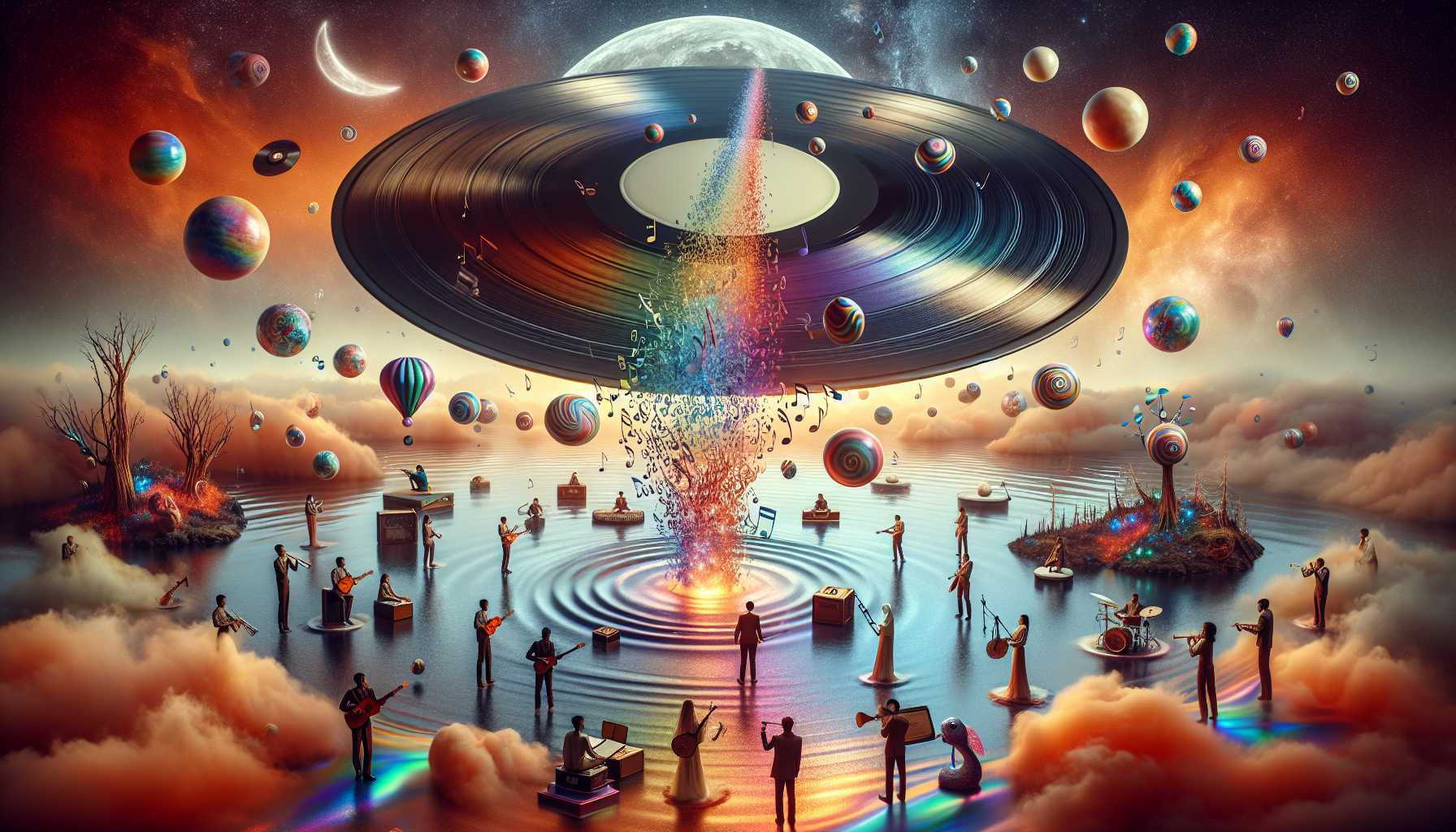 Artists have historically courted controversy, pushing boundaries both cultural and creative. Ye, in partnership with Ty Dolla $ign, continues this tradition with the Vultures album trailer, a visual canvas smeared with disturbing, AI-driven distortions. It’s enough to give you pause – but not necessarily to skip the track. Here AI serves not just as a tool, but as a co-conspirator in evoking emotions. Canadian artist Jon Rafman, the wizard behind the trailer, has been vocal about AI reshaping the landscape of artistic creation, likening it to the impacts of the Industrial Revolution. And while debates rage over the authenticity of AI art, few can deny the palpable shift it’s catalyzing in the artist’s approach to craft-making.
Artists have historically courted controversy, pushing boundaries both cultural and creative. Ye, in partnership with Ty Dolla $ign, continues this tradition with the Vultures album trailer, a visual canvas smeared with disturbing, AI-driven distortions. It’s enough to give you pause – but not necessarily to skip the track. Here AI serves not just as a tool, but as a co-conspirator in evoking emotions. Canadian artist Jon Rafman, the wizard behind the trailer, has been vocal about AI reshaping the landscape of artistic creation, likening it to the impacts of the Industrial Revolution. And while debates rage over the authenticity of AI art, few can deny the palpable shift it’s catalyzing in the artist’s approach to craft-making.
The Tumultuous Terrain of AI in Art
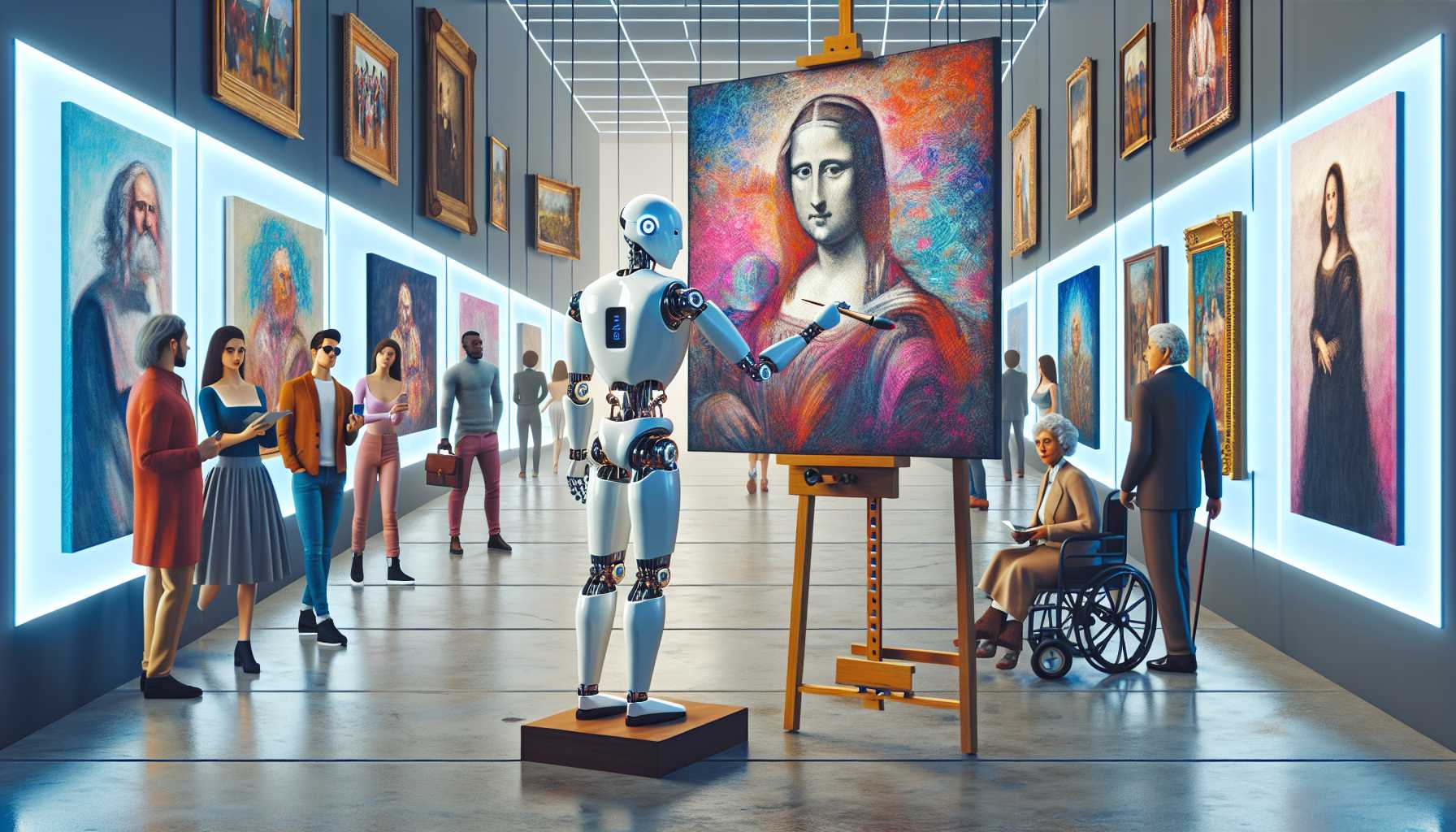 We’ve seen our fair share of AI-related brouhaha, from Nicki Minaj’s extra-digital-finger fiasco to Marvel Studios’ ‘Secret Invasion’ AI-generated opening sequence. Each instance swells the discourse of AI in mainstream media, nudging us gradually towards an inevitable AI-augmented reality in entertainment. Yet, what appeals to me most as someone invested in the future of tech is not just the blunders or triumphs of AI in our media but rather the insistence of creatives to explore this uncharted territory. Yes, AI might not yet rival the feverish unpredictability of the human mind or capture the nuanced texture of our reality, but what it’s doing is sparking a dialogue about the essence of creativity itself – and who gets to define it.
We’ve seen our fair share of AI-related brouhaha, from Nicki Minaj’s extra-digital-finger fiasco to Marvel Studios’ ‘Secret Invasion’ AI-generated opening sequence. Each instance swells the discourse of AI in mainstream media, nudging us gradually towards an inevitable AI-augmented reality in entertainment. Yet, what appeals to me most as someone invested in the future of tech is not just the blunders or triumphs of AI in our media but rather the insistence of creatives to explore this uncharted territory. Yes, AI might not yet rival the feverish unpredictability of the human mind or capture the nuanced texture of our reality, but what it’s doing is sparking a dialogue about the essence of creativity itself – and who gets to define it.
Conclusion: Embracing the Inevitable AI Evolution
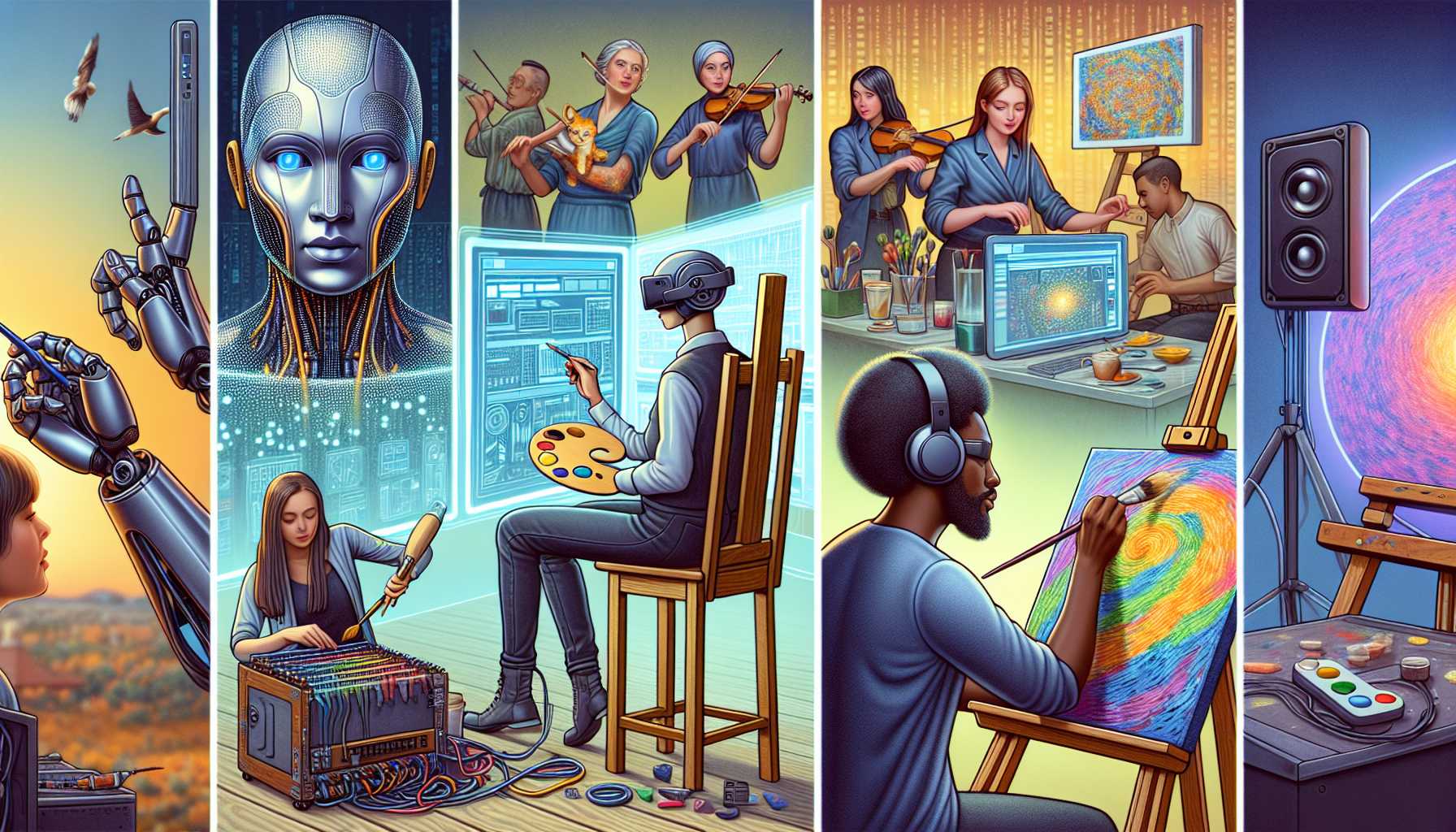 The current landscape of generative AI in pop culture is undeniably tumultuous. There’s a resonance in Jon Rafman’s assertion that AI is both terrifying and revolutionary. Those paying attention to this evolving saga understand that AI’s integration in entertainment isn’t a passing gimmick. It’s an evolutionary leap, rippling through the foundations of creative industries. This onward march isn’t without its casualties – authenticity and emotional depth being prime contenders. But as a tech enthusiast and advocate, I see potential in this chaos. AI could free us from the drudgery of creation, empowering artists to scale new heights of innovation. The onus lies with us to harness this fledgling colossus, steering it towards a future that enhances, not eclipses, human creativity. As we stand at this inflection point, the big question remains: Will we acclimate to this brave new world, or will we let our apprehensions obstruct the boundless possibilities that AI – with all its glorious imperfections – has to offer? The jury is still out, but one thing’s for sure: the generative AI revolution is well underway, and pop culture is just beginning to feel its reverberations.
The current landscape of generative AI in pop culture is undeniably tumultuous. There’s a resonance in Jon Rafman’s assertion that AI is both terrifying and revolutionary. Those paying attention to this evolving saga understand that AI’s integration in entertainment isn’t a passing gimmick. It’s an evolutionary leap, rippling through the foundations of creative industries. This onward march isn’t without its casualties – authenticity and emotional depth being prime contenders. But as a tech enthusiast and advocate, I see potential in this chaos. AI could free us from the drudgery of creation, empowering artists to scale new heights of innovation. The onus lies with us to harness this fledgling colossus, steering it towards a future that enhances, not eclipses, human creativity. As we stand at this inflection point, the big question remains: Will we acclimate to this brave new world, or will we let our apprehensions obstruct the boundless possibilities that AI – with all its glorious imperfections – has to offer? The jury is still out, but one thing’s for sure: the generative AI revolution is well underway, and pop culture is just beginning to feel its reverberations.









